Playtime (sometimes written PlayTime) is a 1967 French-Italian comedy film directed by Jacques Tati. In Playtime, Tati again plays Monsieur Hulot, a character who had appeared in his earlier films Mon Oncle and Les Vacances de Monsieur Hulot. As mentioned on the production documentary that accompanies the Criterion Collections DVD of the film, by 1964 Tati had grown ambivalent towards playing Hulot as a recurring central role. Unable to dispense with the popular character altogether, Hulot appears intermittently in Playtime, alternating between central and supporting roles.
| Playtime | |
|---|---|
| Directed by | Jacques Tati |
| Produced by | Bernard Maurice René Silvera |
| Written by | Jacques Tati Jacques Lagrange Art Buchwald (add'l Eng. dialogue) |
| Starring | Jacques Tati |
| Music by | Francis Lemarque |
| Cinematography | Jean Badal Andréas Winding |
| Edited by | Gérard Pollicand |
Release date |
|
Running time | 124 minutes |
| Country | France Italy |
| Language | French English German |
Playtime was made from 1964 through 1967. Shot in 70 mm, the work is notable for its enormous set, which Tati had built specially for the film, as well as Tati's trademark use of subtle, yet complex visual comedy supported by creative sound effects; dialogue is frequently reduced to the level of background noise.
Playtime is considered Tati's masterpiece, as well as his most daring work.
Screenplay
Playtime is structured in six sequences, linked by two characters who repeatedly encounter one another in the course of a day: Barbara, a young American tourist visiting Paris with a group composed primarily of middle-aged American women, and Monsieur Hulot, a befuddled Frenchman lost in the new modernity of Paris. The sequences are as follows:
- The Airport: the American tour group arrives at the ultra-modern and impersonal Orly Airport.
- The Offices: M. Hulot arrives at one of the glass and steel buildings for an important meeting, but gets lost in a maze of disguised rooms and offices, eventually stumbling into a trade exhibition of lookalike business office designs and furniture nearly identical to those in the rest of the building.
- The Trade Exhibition: M. Hulot and the American tourists are introduced to the latest modern gadgets, including a door that slams "in golden silence" and a broom with headlights, while the Paris of legend goes all but unnoticed save for a flower-seller's stall and a single reflection of the Eiffel Tower in a glass window.
- The Apartments: as night falls, M. Hulot meets an old friend who invites him to his sparsely furnished, ultra-modern and glass-fronted flat. This sequence is filmed entirely from the street, observing Hulot and other building residents through uncurtained floor-to-ceiling picture windows.
- The Royal Garden: This sequence takes up almost the entire second half of the film. At the restaurant, Hulot reunites with several characters he has periodically encountered during the day, along with a few new ones, including a nostalgic ballad singer and a boisterous American businessman.
- The Carousel of Cars: Hulot buys Barbara two small gifts as mementos of Paris before her departure. In the midst of a complex ballet of cars in a traffic circle, the tourists' bus returns to the airport.
When possible, Tati cast nonprofessionals. He wanted people whose inner essence matched their characters and who could move in the way he wanted.
|
|
The film is famous for its enormous, specially constructed set and background stage, known as 'Tativille', which contributed significantly to the film's large budget, said to be 17 million francs. The set required a hundred construction workers to construct along with its own power plant. Budget crises and other disasters stretched the shooting schedule to three years, including 1.4 million francs in repairs after the set was damaged by storms. Tati observed, correctly, that the cost of building the set was no greater than what it would have cost to have hired Elizabeth Taylor or Sophia Loren for the leading role. Budget overruns forced Tati to take out large loans and personal overdrafts to cover ever-increasing production costs.
As Playtime depended greatly on visual comedy and sound effects, Tati chose to shoot the film on the high-resolution 70 mm film format, together with a complicated (for its day) stereophonic soundtrack.
To save money, some of the building facades and the interior of the Orly set were actually giant photographs. (The photographs also had the advantage of not reflecting the camera or lights.) The Paris landmarks Barbara sees reflected in the glass door are also photographs. Tati also used life-sized cutout photographs of people to save money on extras. These cutouts are noticeable in some of the cubicles when Hulot overlooks the maze of offices, and in the deep background in some of the shots at ground level from one office building to another.
In Playtime, Tati's character, M. Hulot, and a group of American tourists attempt to navigate a futuristic Paris constructed of straight lines, modernist glass and steel high-rise buildings, multi-lane roadways, and cold, artificial furnishings. In this environment, only the irrepressible nonconformity of human nature and an occasional appreciation for the good old days breathe life into an otherwise sterile urban lifestyle. Modern industrial technologies, accepted as necessary by society, are represented by Tati as obstructions to daily life and an interference to natural human interaction.
Tati wanted the film to be in color but look like it was filmed in black and white – an effect he had previously employed to some extent in Mon Oncle. Predominant colors are in shades of grey, blue, black, and greyish white. Green and red are used as occasional accent colors: for example, the greenish hue of patrons lit by a neon sign in a sterile and modern lunch counter, or the flashing red light on an office intercom. It has been said that Tati had one red item in every shot. Except for a single flower stall, there are no genuine green plants or trees on the set, though dull plastic plants adorn the outer balconies of some buildings, including the restaurant (the one location shot apart from the road to the airport). Thus, when the character of Barbara arrives at the Royal Garden restaurant in an emerald green dress seen as 'dated' by the other whispering female patrons clothed in dark attire, she visually contrasts not only with the other diners, but also with the entire physical environment of the film. As the characters in the restaurant scene begin to lose their normal social inhibitions and revel in the unraveling of their surroundings, Tati intensifies both color and lighting accordingly: late arrivals to the restaurant are less conservative, arriving in vibrant, often patterned clothing.
Tati detested close-ups, considering them crude, and shot in medium-format 70 mm film so that all the actors and their physical movements would be visible, even when they were in the far background of a group scene. He used sound rather than visual cues to direct the audience's attention; with the large image size, sound could be both high and low in the image as well as left and right. As with most Tati films, sound effects were utilized to intensify comedic effect; Leonard Maltin wrote that Tati was the "only man in movie history to get a laugh out of the hum of a neon sign!" Almost the entire film was dubbed after shooting; the editing process took nine months.
Philip Kemp has described the film's plot as exploring "how the curve comes to reassert itself over the straight line". This progression is carried out in numerous ways. At the beginning of the film, people walk in straight lines and turn on right angles. Only working-class construction workers (representing Hulot's 'old Paris', celebrated in Mon Oncle) and two music-loving teenagers move in a curvaceous and naturally human way. Some of this robotlike behavior begins to loosen in the restaurant scene near the end of the film, as the participants set aside their assigned roles and learn to enjoy themselves after a plague of opening-night disasters. Throughout the film, the American tourists are continually lined up and counted, though Barbara keeps escaping and must be frequently called back to conform with the others. By the end, she has united the curve and the line (Hulot's gift, a square scarf, is fitted to her round head); her straight bus ride back to the airport becomes lost in a seemingly endless traffic circle that has the atmosphere of a carnival ride.
The extended apartment sequence, where Tati's character visits a friend and tours his apartment, is notable. Tati keeps his audience outside of the apartment as we look inside the lives of these characters. In September 2012, Interiors, an online journal that is concerned with the relationship between architecture and film, released an issue that discussed how space is used in this scene. The issue highlights how Tati uses the space of the apartment to create voyeurs out of his audience.
On its original French release, Playtime was acclaimed by most critics. However, it was commercially unsuccessful, failing to earn back a significant portion of its production costs. The film was entered into the 6th Moscow International Film Festival where it won a Silver Prize.
One reason for the film's commercial failure may have been Tati's insistence that the film be limited to those theaters equipped with 70 mm projectors and stereophonic sound (he refused to provide a 35 mm version for smaller theaters). For another, audiences worldwide had come to love Tati's films for the character of M. Hulot; his reduction to an intermittent, occasionally supporting role in the new Tati film came as a disappointment to many (Tati himself lampooned the phenomenon in two scenes in Playtime, where a rain-coated pedestrian whose back is turned to the audience is mistakenly hailed as Hulot, the first being English and the second African-American). Others disliked its nearly plotless story line, while those who only saw a single showing frequently missed the intricate, sometimes simultaneous comic sight gags performed in the various group scenes. A final reason for the film's poor rece
Watch movie Playtime online on Amazon
Watch movie Playtime online
Watch The Movie On PrimeEk Aur Ek Gyarah Full HD Movie Download

Jamai Raja Full HD Movie Download
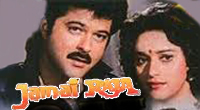
Shikari (1963) Full HD Movie Download
.jpg)
Meharbani (1982) Full HD Movie Download
.jpg)
Pyaar Koi Khel Nahin Full HD Movie Download
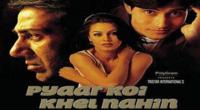
Baat Ek Raat Ke Full HD Movie Download
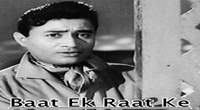
Meri Awaaz Suno Full HD Movie Download
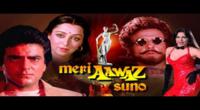
Rokkk Full HD Movie Download
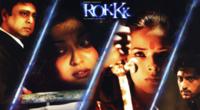
Fashion (2008) Full HD Movie Download
.jpg)
Pudhu Pudhu Arthangal Full HD Movie Download
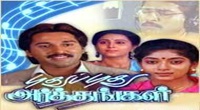
Seema Simham Full HD Movie Download
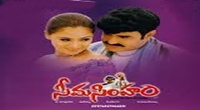
The Matrix Revolutions Full HD Movie Download
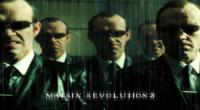
Wild Wild West Full HD Movie Download
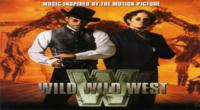
Terminator 2 Judgment Day Full HD Movie Download
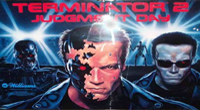
Ottesi Cheputunna Full HD Movie Download
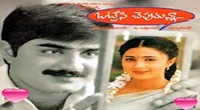
Bhoot Bungla Full HD Movie Download
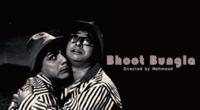
Kati Patang Full HD Movie Download
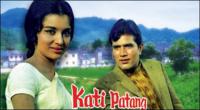
Dostana (2008) Full HD Movie Download
.jpg)
Dusra Aadmi Full HD Movie Download
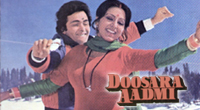
Ladies VS Ricky Bahl Full HD Movie Download

Laaga Chunari Mein Daag Full HD Movie Download

Download latest Movie from bollywood
- 1> baaghi 3
- 2> THE SKY IS PINK MOVIE FULL STORY AND REVIEW
- 3> Luka Chuppi
- 4> TO ALL THE BOYS I’VE LOVED BEFORE
- 5> Kabir Singh
- 6> Street Dancer 3D
- 7> Simmba
- 8> Gone Girl
- 9> The Girl Who Lived
- 10> Ludo
- 11> DILWALE DULHANIA LE JAYENGE
- 12> GUILTY
- 13> The Godfather
- 14> Adventures of Rusty
- 15> Sooryavanshi
- 16> Satyameva Jayate 2
- 17> Thappad
- 18> Bhool Bhulaiyaa 2
- 19> KGFChapter 2
- 20> Mardaani 2
- 21> Pinjar
- 22> Shivaji maharaj
- 23> Ek Villian 2
- 24> Hungama 2
- 25> Divergent
- 26> Mumbai Saga
- 27> The Internship
- 28> HIT (telugu)
- 29> Panga
- 30> The perfect date
- 31> 16 December
- 32> Gopala Gopala (Telugu)
- 33> Brahmastra
- 34> Gangubai Kathiawadi
- 35> Manmadhudu
- 36> Nenu local
- 37> Mahanati
- 38> Shatamanam bavathi
- 39> Lagaan
- 40> After
- 41> MOM
- 42> Shamshera
- 43> Raguvaran BTech
- 44> Khakee
- 45> The villain
- 46> OM
- 47> Mr. perfect
- 48> Bueatifull mind
- 49> Hichki
- 50> Gabbar Singh
- 51> Jogi
- 52> Before Sunrise
- 53> Before Sunset
- 54> Before Midnight
- 55> The Big Bull
- 56> Top Gun: Maverick
- 57> The Purge
- 58> The Sky is Pink
- 59> Laxmmi Bomb
- 60> Sadak 2
- 61> Sufna
- 62> Prithviraj
- 63> PK
- 64> Coolie No 1(2020)
- 65> Black Widow
- 66> Dear Zindagi
- 67> Dil Bechara
- 68> PHIR HERA PHERI
- 69> WAR
- 70> Dostana
- 71> RRR: Roudram Ranam Rudhiram
- 72> Maidan
- 73> Dabbang 3
- 74> Chhalaang
- 75> life as we know it
- 76> SherShaah
- 77> Sandeep Aur Pinky Faraar
- 78> Event Horizon
- 79> 83
- 80> Radhe: Your Most Wanted Bhai
- 81> Gunjan Saxena: The Kargil Girl
- 82> Mr India
- 83> Vivah
- 84> Anokha Bandhan
- 85> Ghost
- 86> Bhoot: Part One - The Haunted Ship
- 87> Haseen Dilruba
- 88> Laal Singh Chaddha
- 89> Qismat
- 90> Rajput
- 91> Drive
- 92> Dil Chahta Hai
- 93> Dil Ki Baazi
- 94> Dil Ka Rishta
- 95> Teesri Manzil
- 96> Dil
- 97> Love Aaj Kal
- 98> Khaali Peeli
- 99> Bunty Aur Babli 2
- 100> Atrangi Re
- 101> Gulabo Sitabo
- 102> Jodi
- 103> Suraj Pe Mangal Bhari
- 104> Deewana
- 105> Attack
- 106> Sardar Udham Singh
- 107> Toofan
- 108> THE LOVEBIRDS
- 109> Jersey
- 110> Ginny Weds Sunny
- 111> Thalaivi
- 112> Shiddat
- 113> Angels vs Zombies
- 114> Koi Mil Gya
- 115> Thank God
- 116> Bhuj: The Pride of India
- 117> Hum Aapke Hain Kaun
- 118> The Platform
- 119> Bird Box
- 120> Roohi Afzana
- 121> Torbaaz
- 122> Nikamma
- 123> World War Z
- 124> Extraction
- 125> Train to Busan
- 126> Life of Pi
- 127> SHAADI MEIN JROOR AANA
- 128> Himmat Aur Mehnat
- 129> To All The Boys: P.S. I Still Love You
- 130> Mimi
- 131> Good Newwz
- 132> Shubh Mangal Zyada Saavdhan
- 133> Raabta
- 134> Harry Potter and the Philosopher's Stone
- 135> Harry Potter and the Chamber of Secrets
- 136> Chhapaak
- 137> War of the Worlds
- 138> Harry Potter and the Prisoner of Azkaban
- 139> Harry Potter and the Goblet of Fire
- 140> MURDER MYSTERY
- 141> Shakuntala Devi
- 142> Bachchan Pandey
- 143> Jayeshbhai Jordar
- 144> Sheer Qorma
- 145> Saina
- 146> 'O' Pushpa I hate tears
- 147> Kedarnath
- 148> MS Dhoni The Untold Story
- 149> Chhichhore
- 150> Badhaai Ho
- 151> Unstoppable
- 152> Oz the Great And Powerful
- 153> The Girl on the Train
- 154> Haathi Mere Saathi 2020
- 155> The Conjuring: The Devil Made Me Do It
- 156> Gandhi Se Pehle Gandhi
- 157> The Song of Scorpions
- 158> Srimanthudu
- 159> Hello Guru Prema Kosame
- 160> Beauty and The Beast
- 161> Black Panther
- 162> Charlie and the Chocolate Factory
- 163> Bole Chudiyan
- 164> Fidaa
- 165> Duvvada Jagannadham
- 166> Bruce Lee: The Fighter
- 167> Hyper
- 168> Yaara
- 169> Red (2020)
- 170> Shivam
- 171> That Is Mahalakshmi
- 172> Nishabdham
- 173> Aashram 2020 web series
- 174> Laxmii
- 175> Mismatched
- 176> STUDENT OF THE YEAR 2
- 177> NAIL POLISH
- 178> Ramprasad Ki Tehrvi
- 179> KAAGAZ
- 180> 12 o Clock
- 181> The Power
- 182> bolo hau
- 183> Tribhanga
- 184> JAMUN
- 185> Madam Chief Minister
- 186> Maasaab
- 187> Aadhaar
- 188> Tanhaji
- 189> Bhaagi 3
- 190> Bhootnath
- 191> MALANG
- 192> Jai Mummy Di
- 193> Haathi Mere Saathi 2021
- 194> Shakeela
- 195> Unpaused
- 196> Annayya
- 197> Vamsoddharakudu
- 198> Mrugaraju
- 199> Narasimha Naidu
- 200> Sankranti
- 201> Manasu Maata Vinadhu
- 202> Anjaane
- 203> Apaharan
- 204> Bachke Rehna Re Baba
- 205> Bewafaa
- 206> Roohi
- 207> Radhe
- 208> Zindagi Khoobsoorat Hai
- 209> Yeh Mohabbat Hai
- 210> Yeh Kya Ho Raha Hai?
- 211> The Tomorrow War
- 212> DehradunDiary
- 213> Meri Shaadi Karaoo
- 214> Matruu Ki Bijlee Ka Mandola
- 215> No One Killed Jesica
- 216> Aag Ka Goola
- 217> Eight Million Dollars
- 218> Three Hundred
- 219> Cats and Dog
- 220> Decoy
- 221> Gold Rush
- 222> You Have Got Mail
- 223> Final Destination three
- 224> Tofan
- 225> Jungle
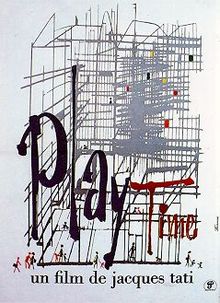 Story of movie Playtime :
Story of movie Playtime : 